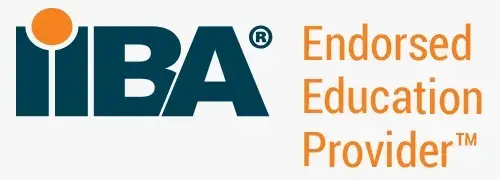These days, the newest trends are Agile and Scrum. The majority of IT-based enterprises and businesses prefer to
hire applicants who are familiar with the Scrum Framework and its associated tools. Scrum is a framework for completing
big projects that is Agile. Although it was created for software development projects, it may be applied to any other
complex project to make quick decisions using the Agile Technique.
According to a recent Forbes Magazine article, IT professionals with credentials make an average of $17,000
more annually than the median income for IT certificates. From the standpoint of an employee, certifications
allow you to highlight additional qualifications on your CV in addition to speeding up the hiring process.
The profession of a Scrum Learn requires many hard and soft skills to master and is difficult but rewarding.
But choosing between the Certified Scrum Master(CSM) and the Professional Scrum Master(PSM) is the actual dilemma
for every enthusiast who wants to become a Scrum Master. Both of these programs are distinctive in their own ways
and are created to meet the demands of the employer's business.
Let's learn more about the CSM and PSM programs separately before making a comparison based on a number of different factors.
What is The CSM Certification?
The Certified ScrumMaster (CSM) Certification
is an entry-level credential offered by the Scrum Alliance that aims to give professionals knowledge of the Scrum Methodology and ideas,
including team performance, accountability, and iterative development. People involved in product delivery who use the Scrum Framework
or those in charge of maximizing Scrum, including Scrum Masters and their teams, can benefit from this qualification.
Individuals can gain a number of beneficial advantages from becoming a CSM, such as better leadership recognition and credibility,
more chances inside firms that use Agile Methodologies, and proof of Scrum proficiency.
Obtaining CSM status demonstrates your understanding of Scrum as an Agile methodology. It demonstrates that you are a capable leader
who can direct your group in the direction of producing goods and attaining the objectives of your company.
What is The PSM Certification?
Professional Scrum Masters can become certified quickly and easily with the use of the PSM, or Professional Scrum Master,
designation. The organization that offers the certification permits candidates to plan and take the PSM exam without previously completing
a course, despite the fact that there are two courses available to prepare for the PSM Certification.
Given that they can become certified quickly, this can be especially helpful to Scrum Masters who have experience in the industry
and are already aware of the knowledge and abilities required of one.
After earning their PSM I Certification, individuals can continue their education by earning their PSM II and PSM III Certifications.
What are The Major Differences Between CSM and PSM Certification?
Governing Bodies
- The Scrum Alliance, a nonprofit organization that offers advice on agile
methods, concepts, and values, offers the Certified ScrumMaster (CSM) credential.
- Scrum.org, an organization formed by Ken Schwaber, a co-creator of Scrum,
offers the Professional Scrum Master (PSM) certification in an effort to raise the level of professionalism in Scrum training globally.
Time Spent Training
- The CSM and PSM training programs each last for two days (14 to 16 hours).
- The PSM course is taught by a Professional Scrum Trainer(PST), whereas the CSM course is taught by a Certified Scrum Trainer (CST)
Training Levels
- The PSM is available at three levels, PSM I, PSM II
and PSM III
- The CSM credential only has one level.
What Score Qualifies as Passing?
- You must receive at least 37 out of a potential 50 points to pass the CSM exam. This is said to be simpler to attain than a passing score on the PSM test.
- The passing requirements for PSM I are fairly strict; in order to receive the Professional Scrum Master Certificate, you must
successfully complete 80 questions and score at least 85%.
Test Format
- The PSM Certificates are a combination of multiple-choice, multiple-answer, and some true/false questions. You will be put to the test during
the PSM I on both Scrum facts and some scenario-based questions.
- The CSM comprises only multiple choice questions.
Certification Cost
- There is no set cost for the CSM test because it is often included in the course fee. The cost of the course, however, normally ranges from $1000 to $1400 USD.
- Each PSM exam taker must pay $150 USD. Your initial exam attempt is free if you sign up for a training session.
How Long Does The Renewal Last?
- Every two years, you must renew your CSM credential by earning 20 SEUs and paying a $100 renewal fee.
- Your PSM credentials do not need to be renewed, on the other hand. The PSM credential has lifelong validity once you've obtained it.
Explanation of The Certification Procedure
You ought to become certified if you wish to work with Scrum. Every certification has a different procedure.
Process for CSM Certification
- A Certified Scrum Trainer(CST) or a Certified Agile Coach(CAC) must teach a live, online or in-person course
for you to achieve certification. There is a 14–16 hour training time.
- After completing the course, you must take the 50-question CSM exam and get 37 of them right in the allotted one hour.
- You will be asked to accept the CSM License Agreement and create a Scrum Alliance membership profile once you have passed the CSM exam. You have a two-year membership.
Process for PSM Certification
- You don't need to enroll in a course if you are comfortable with your knowledge of PSM I. You can instead apply to take the PSM I
test. However, the course increases your likelihood of passing the test the first time.
- Utilize any study tools available to you as you prepare for the test.
- Take the test, pass it, and get certified.
How Difficult is The Exam?
Some people can easily pass even the most difficult exams while others find it difficult to respond to even the most straightforward questions.
However, compared to the Professional Scrum Master I and II examinations, the Certified Scrum Master Certification
is typically simpler. We've already mentioned that there is no class attendance requirement for the PSM exam.
This is great for those who don't want to pay for or go to training, but those classes are there for a reason—they help candidates pass. As a result, some students who skip the optional instruction find out too late that they weren't well prepared for the test.
What are The Benefits of PSM vs. CSM?
Both Scrum certifications have their benefits. Here is a list of each advantage.
Benefits of CSM Certification
- You have the chance to work as a Scrum Master in a variety of fields that use Agile Methodologies.
- A-CSM,
CSP-SM,
or CST are advanced CSM courses that can be taken after this course as a prerequisite.
- You learn more about the origins of Scrum and the function of the Scrum Master, as well as acquire
knowledge and skill in essential Scrum practices, values, and principles.
- You may be able to earn more money depending on your region, certification level, and experience.
- Through the Scrum Alliance, you have improved networking chances with several Scrum specialists.
- The CSM Certification raises your standing among your peers.
Benefits of PSM Certification
- You develop a thorough understanding of the framework and other concepts in Scrum.
- Since top employers always seek out motivated people who enjoy learning, taking the PSM course exhibits this desire, giving you access to improved career chances.
- You get respect in your company by becoming a certified Scrum expert.
- For professionals who wish to continue in their careers and enroll in advanced Scrum-related courses like
PSM II and PSM III, the course is the ideal place to start.
- The training keeps you up to date on the most recent Agile developments and introduces you to other Scrum professionals on the Scrum.org network.
What Are The Learning Outcomes of PSM vs. CSM?
You will possess all the abilities necessary to support Scrum Teams in operating at their peak efficiency as a certified
CSM, including
the capacity to overcome obstacles and make effective use of the Scrum Framework. Professionals in CSM are referred to as "Servant Leaders"
because they set an example for their teams and foster a positive work environment.
Professionals who successfully complete PSM I Certification demonstrate a foundational, fundamental level of Scrum Mastery
and are well-versed in Scrum's Methodology and Jargon. Scrum Masters who complete PSM II acquire a greater comprehension of Scrum's
tenets and the capacity to use Scrum in challenging complex circumstances.
Final Words
Scrum expertise has recently become one of the most in-demand skills, and the CSM and PSM Certifications are highly regarded in the Scrum community.
Although many people choose the CSM because it is thought to be an easier exam to pass, the certificate must be renewed every two years.
The PSM is valid for a lifetime even though it has a slightly harder assessment.
The skills covered in PSM and CSM courses are Scrum Framework, Agile Approach and Principles,
Scrum Ceremonies, and Scrum roles. Moreover, joining Techcanvass
PSM and CSM training courses will make you a highly compatible Scrum Master. All our instructors have Project Management
work experience and are PMI-approved instructors.
Apart from this, Techcanvass provides mock questions to practice and master each chapter full-length test–simulating
the actual exam in a simulator. Techcanvass even conducts special workshops to help you practice better for exams. Join Techcanvass to bring your future to a great
height and achieve success in the Scrum domain.
About Author

Abhishek Srivastava
-Senior IT Professional , CBAP Certified
Abhishek Srivastava is a seasoned IT professional with diverse experience in Banking, Insurance, Utility and Education domains.
Managing large accounts, Program management & Business Analysis has been his forte, having done so for customers like ICICI Bank,
NTPC & many other International customers.
In the past, he has been associated with companies like Mastek and 3i Infotech Ltd (erstwhile ICICI Infotech Ltd). An NIT (Erstwhile REC)
/ IIM Kozhikode graduate, now as an entrepreneur, he is pursuing his dream of creating an organization for providing quality training
in the fields of Project Management and Business Analysis. His other areas of interest are Business Analysis consulting and mentorship.
Over the years, he has mentored and guided more than 1000 professionals



